Ear Mites & Fur Mites
Ear Mites & Fur Mites in English Angora Rabbits
Always consult a Veterinarian for medical questions about your bunny!
Rabbits can get fur and ear mites, (Cheyletiella mites), very easily.
This is the most common mite that will infect rabbits.
Stray animals and wild animals carry them and pass through yards on a daily basis. One minute your bunny could be mite free hopping around grazing on grass in your back yard and then all of a sudden one day you notice a nasty crusty and flaky debris on the inside of your bunnies ear. Or you notice something that looks like dandruff (fur mites are often referred to as “walking dandruff”) on the back of your bunnies neck or back. These are the first signs of mites.
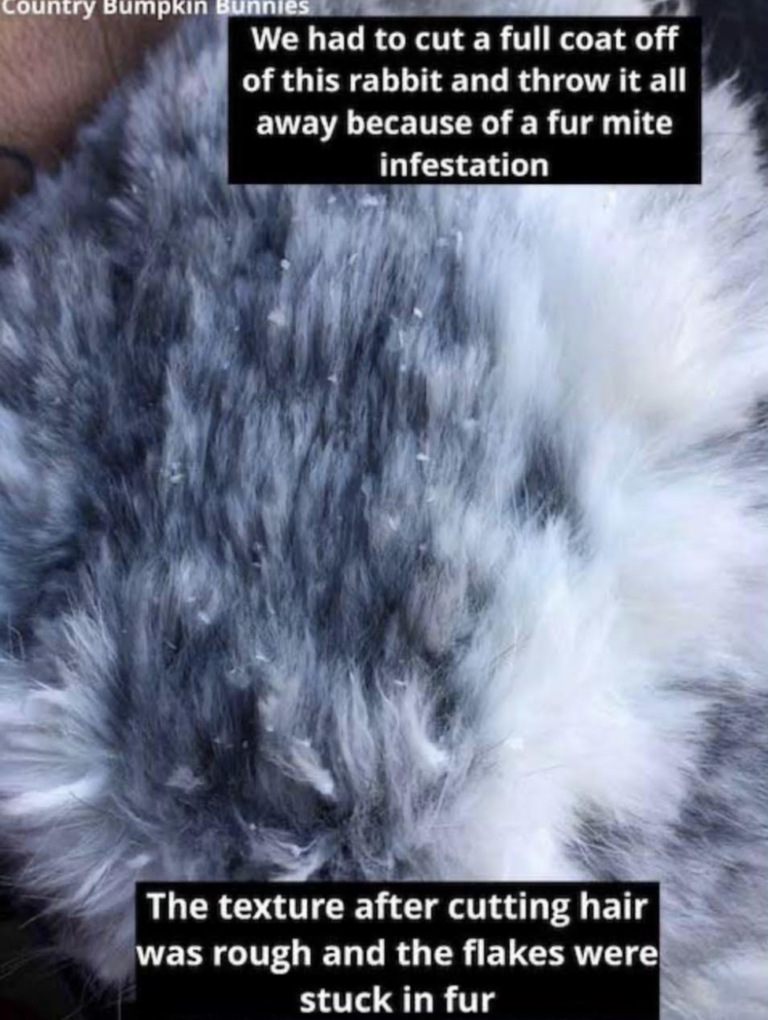
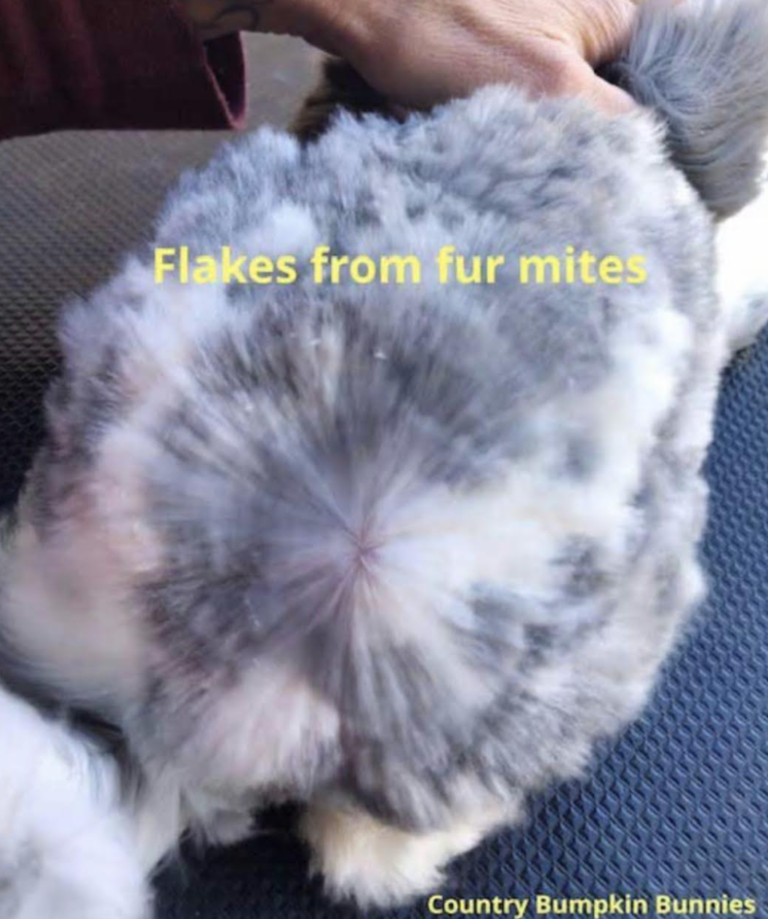
What are the effects of these mites in rabbits?
The mites eat the top layer of skin (keratin) by secreting an enzyme that dissolves a tiny portion of the skin and will cause the itching and flakes you can see with the naked eye. If left untreated, it can make the rabbit weak and compromise their immune system. It is a very simple parasite to treat and kill. This type of mite cannot live out its full life cycle (3 weeks) on a human. Make no mistake though, they can and will bite you! It is best to change clothing and shower immediately after grooming a rabbit with mites!

The Best Treatment for Ear and Fur Mites in Rabbits
There is no need for an uncontrollable mite infestation in a rabbitry.
We give an injectable dose of Ivermectin (cattle wormer that can be easily overdosed so please do your research before using) in the nape of the neck and follow up one week later with a second injection as a precaution. I have read that you can give this injection five days to three weeks later. We have never had a bad infestation that has taken over our rabbitry but our prevention treatments help keep this under control.
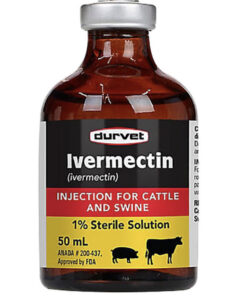
You can also use Revolution for cats because it kills fleas and mites. Revolution is a prescription drug and needs to be obtained through your veterinarian. We had to go this route once after boarding our rabbits with an unclean rabbitry years ago in Florida where fleas are plentiful. Please note, never use Frontline products on any rabbit as it can be fatal. Over the counter Advantage for kittens also works for fleas. Always consult your veterinarian about any medication and treatment for your animals.
Here are some photos of ear mites on our wool rabbits.
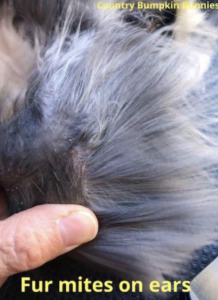
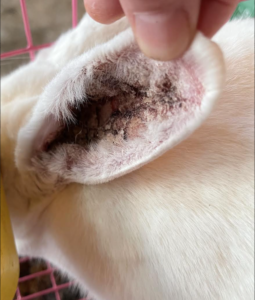
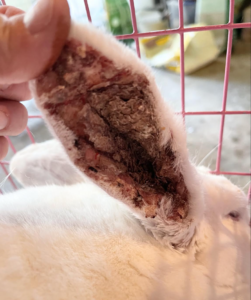
Other photos are of a New Zealand rabbit that seemed fine one day and the next, looked like this! The most wonderful news about mites, no matter which it is (fur mites or ear mites), treatment is simple and quick. One injection cleared these ears up within one week.
Please note that Ivermectin is great for worming, fur mites, and ear mites. However, please use caution as it can be fatal if overdosed. In dogs, I have personally witnessed blindness for 24 hours when overdosed.
When dosing out ivermectin, use a 1 cc syringe rather than a 3 cc syringe. It can be applied topically, injected or given orally (same does). We give .02 cc on our adults/seniors and .015 cc to juniors over 6 weeks of age.
I have read in multiple places by newer breeders that ivermectin can be used to treat fleas but this is NOT true. I even had this discussion with a veterinarian who also raises rabbits that I transported for. She too thought ivermectin was useful for fleas. When I told her that Revolution worked but not ivermectin, she looked at the ingredients and agreed that this is true. Please, if you have an outbreak of fleas, DO NOT treat with Ivermectin. Your rabbits will be extremely uncomfortable and you will think the fleas are gone. Fleas will need to be treated on the actual rabbits, bedding if any, cage space and ground coverings in the area of the rabbit hutches. Fleas are a host for tapeworm so you also will need to treat for tapeworm which is another type of wormer. This is one you will need to consult the vet on!
We share our experience but always recommend that you consult with your veterinarian for all medical advice and care for your English Angora rabbits and bunnies. We only document how we treat our problems in our own Rabbitry and are NOT veterinarians.


